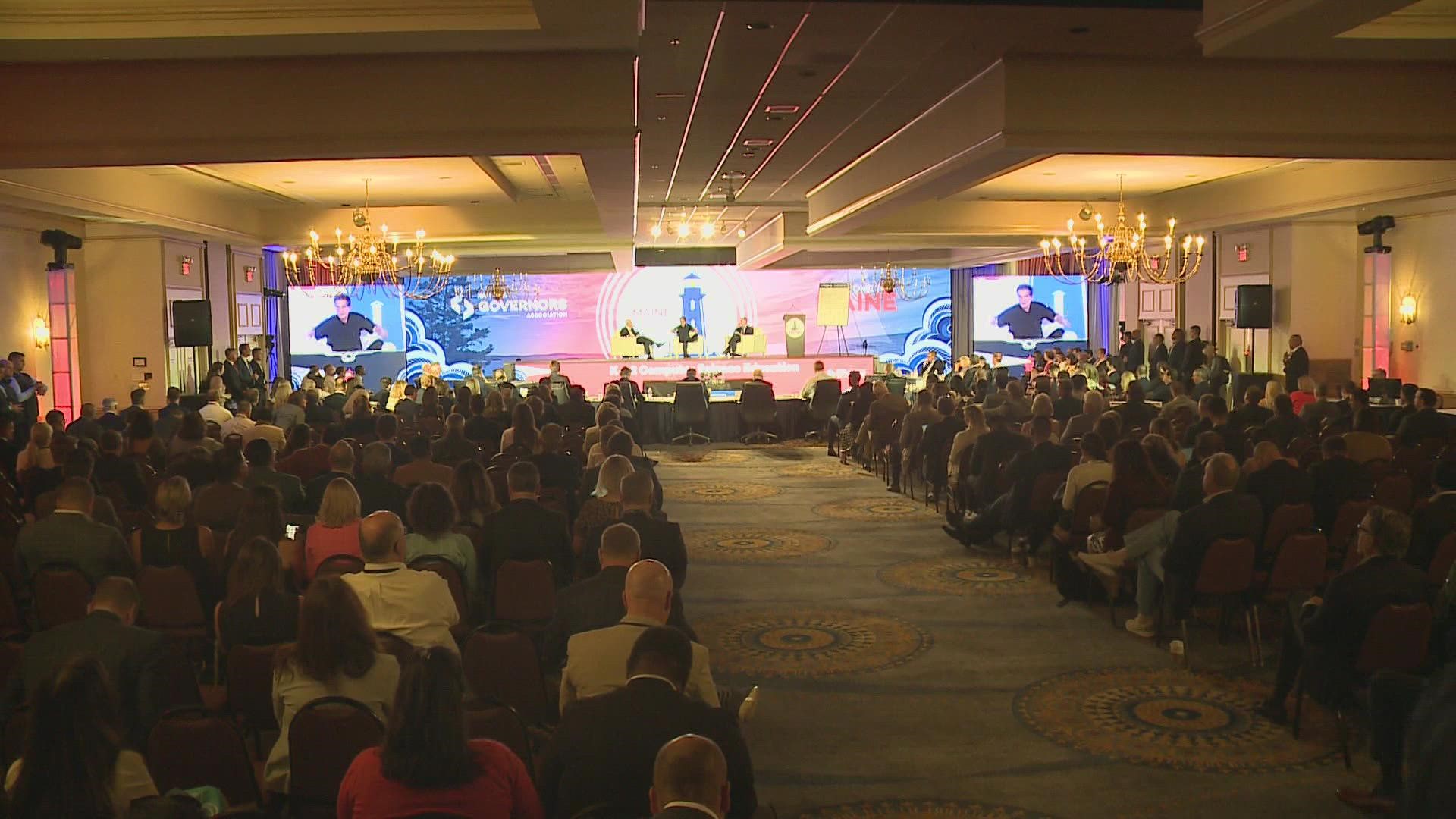PORTLAND, Maine — More than half the nation’s governors chose not to spend part of their July in Maine. Those who did were treated to sun, lobster, and plenty of serious talk.
The first day of public meetings for the National Governors’ Association summer meeting wrapped up late Thursday afternoon in Portland, following sessions about travel and tourism, and increasing computer science education in the nation’s schools.
It’s the first time the conference has taken place in Maine since 1983.
At the morning session, only 19 governors were in attendance. There were 10 Democrats and 9 Republican governors around the table at the Holiday Inn By The Bay. Maine Gov. Janet Mills had said earlier in the week that its not unusual for a number of governors to skip the summer meeting.
Mills welcomed the group to Maine, urging them to leave partisanship at the door and work together.
“There is opportunity for finding common ground and consensus despite disagreements — that is what governors have to do every day,” Mills told the audience.
In the morning session, there seemed to be wide agreement that the U.S. needs to expand computer science training for K-12 schools.
NGA chairman Gov. Asa Hutchinson, R-Arkansas, said the governors were already on the record from a previous discussion stating how computer science needs to become a much more important part of the curriculum — both because of job and growth opportunities, and to reinforce national security.
Patrick Geisinger, the CEO of Intel, told the group the U.S. now produces just 12 percent of the world’s computer chips, and that the country needs to better compete against China and other countries. He said that means more training for more people, as well as investment to significantly increase both domestic research, development, and chip production.
“Geo-politics have been defined the last five decades by where the oil reserves are,” Geisinger said. “Where the fabrication facilities are for the semi conductors — where the technology developers are will be most important for the next five decades, and as I like to say, let’s build them where we want them."
Geisinger told the governors his company still hopes to build two new chip plants in the U.S., in Arizona and Ohio. But he said the company and others are waiting for Congress to pass a bill called the Chips for America Act. Among other things, it would provide billions of dollars for investment into research and the manufacturing of computer chips in the United States.
Geisinger said the Senate passed the bill a year ago, but it has languished in the House. He called on the governors to pressure Congress to pass the bill before its usual August summer vacation.
NGA chairman Hutchinson said the governors will discuss the issue before the end of the conference and come up with a plan to apply pressure on the federal government.
Meanwhile Dean Kamen, inventor of the Segway personal transportation device as well as multiple medical devices, told the governors much more work is needed to expand computer science education and to persuade more women and minorities that the field is open to them.
Kamen, who founded a nonprofit called FIRST to advocate for more science and technology education, called on the governors to increase their efforts to reach that goal. He said the states need to make so-called STEM competitions as much a priority as high school sports.
“If you guys can get involved in making this happen, it might be the biggest legacy in this country for a cultural shift," Kamen said.
New Hampshire Gov. Chris Sununu, Republican, voiced strong support for increasing science and technology education.
“Computer coding is the number one way to get our of poverty. It isn’t just a job, it’s a high paying career. Its what our country needs,” Sununu said.
Gov. Janet Mills said Maine has made significant strides in expanding computer science education, and said the Pine Tree State ranks well above many other states in the progress on the issue.
The governors also talked travel and tourism Thursday afternoon, and Friday’s session will look at improving literacy, which will include a virtual appearance by singer Dolly Parton, a strong advocate of better literacy education.

